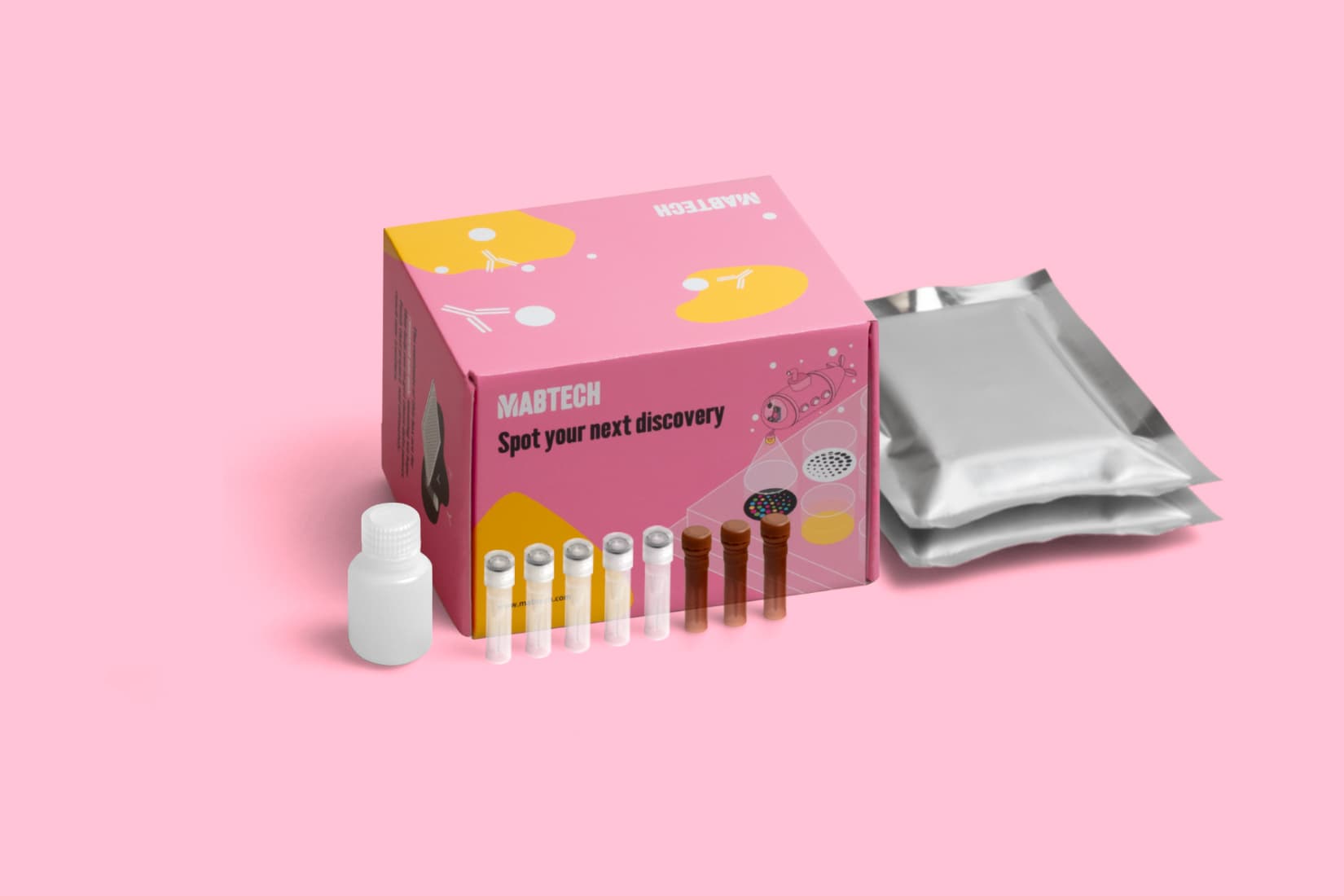FluoroSpot Path: Human immunotherapy potency (3‑color)
FluoroSpot Path: Human immunotherapy potency (3‑color)
Special offer
You may add these complementary products at a reduced price.
- Reactivity:
- Application:
- Plates:
- Reactivity:
- Application:
- Plates:
This offer is valid when purchasing FluoroSpot Path: Human immunotherapy potency (3-color) or other qualifying products.
Components
| Plate | Pre-coated FluoroSpot plate (mAbs 1-D1K, MT34B6, and MT25C5) |
| Detection mAbs | Anti-IFN-γ mAb (7-B6-1), BAM |
| Anti-Granzyme B (MT28), biotin | |
| Anti-TNF-α mAb (MT20D9), WASP | |
| Fluorophore conjugates | Anti-BAM mAb, 490 |
| SA-550 | |
| Anti-WASP mAb, 640 | |
| Buffer/Solution | FluoroSpot enhancer |
| Positive control | Anti-CD3 mAb (CD3-2) |
| Co-stimulus | Anti-CD28 mAb (CD28-A) |
In stock
Delivery 4-9 business days
Shipping $0
Complementary products
Complementary products
Performance
Documents
Tutorials
Publications (0)
Analyte information
IFN-γ
| Analyte description | Interferon-γ (IFN-γ) is the only type II interferon. This proinflammatory cytokine is secreted by activated T cells and NK cells. It activates macrophages and endothelial cells and regulates immune responses by affecting APCs, T cells, and B cells. Production of IFN-γ by helper T cells and cytotoxic T cells is a hallmark of the Th1-type phenotype. Thus, high-level production of IFN-γ is typically associated with effective host defense against intracellular pathogens. |
| Alternative names | Interferon-γ, Interferon-gamma, IFN-γ, IFN-gamma, IFN-g, IFNg, IFG, IFI, IMD69 |
| Cell type | T cell, Tc, Th1, NK cell |
| Gene ID | 3458 |
Granzyme B
| Analyte description | Granzyme B is a serine protease released by the cytoplasmic granules within cytotoxic T cells and NK cells. Granzyme B will act together with perforin and other cytotoxic mediators to induce target cell death by apoptosis. |
| Alternative names | Granzyme B, GzmB, GrB, GrzB, C11, CCPI, CGL-1, CGL1, CSP-B, CSPB, CTLA1, CTSGL1, HLP, SECT |
| Cell type | T cell, Tc, Th1, NK cell |
| Gene ID | 3002 |
TNF-α
| Analyte description | Tumor necrosis factor (TNF), also known as TNF-α, is produced by many different cell types, e.g., monocytes, macrophages, T cells, and B cells. Among the many effects of TNF-α are protection against bacterial infection, cell growth modulation, immune system regulation, and involvement in septic shock. |
| Alternative names | Tumor necrosis factor-α, TNF-α, TNF-alpha, TNF-a, TNFa, Tumor necrosis factor-alpha, TNF, DIF-alpha, TNFA, TNFSF2, TNLG1F |
| Cell type | T cell, Tc, Th1, Th2, Th17, Tfh, Monocyte/MΦ |
| Gene ID | 7124 |
